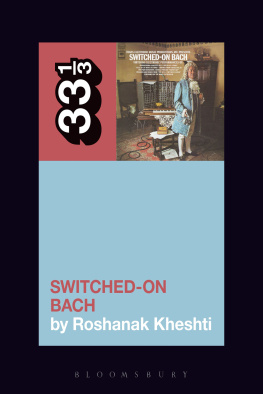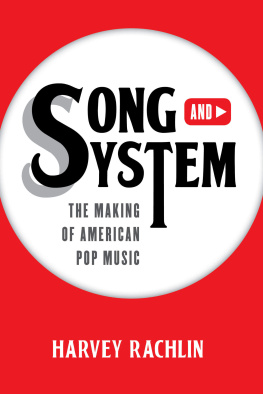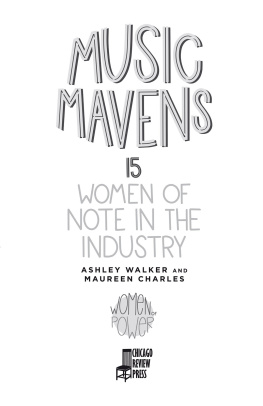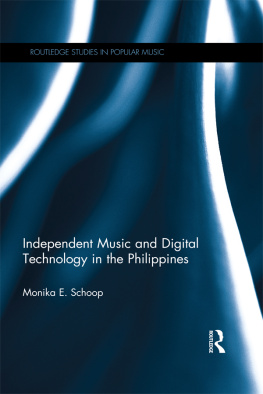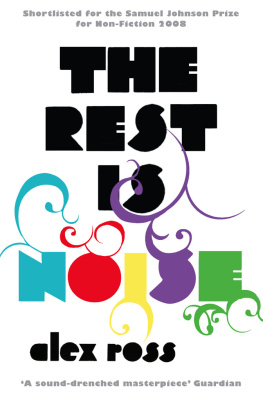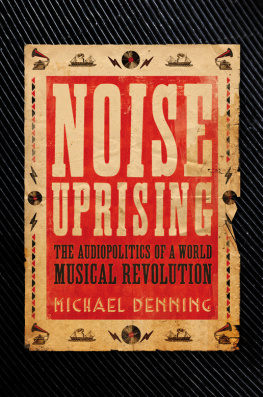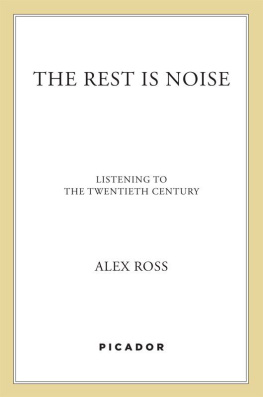POSTMILLENNIAL POP
General Editors: Karen Tongson and Henry Jenkins
Puro Arte: Filipinos on the Stages of Empire
Lucy Mae San Pablo Burns
Spreadable Media: Creating Value and Meaning in a Networked Culture
Henry Jenkins, Sam Ford, and Joshua Green
Media Franchising: Creative License and Collaboration in the Culture Industries
Derek Johnson
Your Ad Here: The Cool Sell of Guerrilla Marketing
Michael Serazio
Looking for Leroy: Illegible Black Masculinities
Mark Anthony Neal
From Bombay to Bollywood: The Making of a Global Media Industry
Aswin Punathambekar
A Race So Different: Performance and Law in Asian America
Joshua Takano Chambers-Letson
Modernitys Ear: Listening to Race and Gender in World Music
Roshanak Kheshti
NEW YORK UNIVERSITY PRESS
New York and London
www.nyupress.org
2015 by New York University
All rights reserved
References to Internet websites (URLs) were accurate at the time of writing.
Neither the author nor New York University Press is responsible for URLs that
may have expired or changed since the manuscript was prepared.
Library of Congress Cataloging-in-Publication Data
Kheshti, Roshanak.
Modernitys ear : listening to race and gender in world music / Roshanak Kheshti.
pages cm. (Postmillennial pop)
Includes bibliographical references and index.
ISBN 978-1-4798-6701-1 (cl : alk. paper) ISBN 978-1-4798-1786-3 (pb : alk. paper)
1. World musicSocial aspects. 2. Sound recordingsSocial aspects. 3. Music and race. I. Title.
ML3916.K54 2015
780.9dc23 2015014812
New York University Press books are printed on acid-free paper,
and their binding materials are chosen for strength and durability.
We strive to use environmentally responsible suppliers and materials
to the greatest extent possible in publishing our books.
Manufactured in the United States of America
10 9 8 7 6 5 4 3 2 1
Also available as an ebook
This project has shifted shape as a result of so many life forces that have put pressure on it and breathed life into it, molding and imprinting upon it over its many years of gestation. While I am single-handedly responsible for all excesses and shortcomings contained within these pages, the book would not have been possible without contributions big and small made by many people I encountered on the meandering and long yellow brick road of its development.
At Indiana University, I was incredibly fortunate to have had as undergraduate advisors Robyn Wiegman and Carol Greenhouse without whose ardent support I would never have pursued my doctorate. Their brilliance so impressed me and their outstanding mentorship taught me so much about the teacher I wanted to grow up to become. I was materially supported by the McNair scholars program there, which enabled me to discover my love of books and research.
At UC Santa Cruz, I was privileged to be in the company of other graduate student misfits who found a home at that odd city on a hill. Afsaneh Kalantary, Ulrika Dahl, Mika Court, Bahiyya Maroon, Alejandra Castaneda, Kale Fajardo, Scott Morgensen, Shiho Satsuka, Kami Chisholm, James Todd, Alejandra Kramer, Roya Rastegar, and Allison Sampson-Anthony provided me companionship and moral support, and gave me the gumption to take the countless leaps of intellectual faith evident in this book. I am grateful for the training I received by my brilliant and uncompromising graduate professors and mentors, including Jackie Brown, Lisa Rofel, Donald Brenneis, Anna Tsing, Bob White, Susan Harding, Diane Gifford-Gonsales, Triloki and Annapurna Pandey, Teresa de Lauretis, David Hoy, Donna Haraway, James Clifford, Angela Davis, Anjali Arondekar, Luis Chude-Sokei, and David Marriott. My mentors Nancy Chen and Gina Dent gave so generously of their time, mentorship, feedback, and nurturing. I have tried to emulate in my own mentorship Nancys compassion and methodical organization. And from Gina I have learned so much about the political project of intellectual work. Gina joined my committee at a critical juncture, changing the course of my career forever. I am eternally grateful for all the years of unwavering support I have received from her.
And while my day job involved training in critical, feminist, psychoanalytic, and anthropological theory, I trained at night in sound. I have learned so much from my band mates, collaborators, and the musicians I encountered in the early aughts. The time spent with Sam Tsitrin and Sara Cassetti in the Ebb and Flow had a particularly great impact on this project. The hours and hours spent rehearsing, recording, and performing trained me in ways to do the thinking I do in this book that I was completely unaware of at the time. I am also grateful to our manager, Joyce Williams, and producer, Christian Hanlon, with whom I spent many hours in the studio engaging, debating, discussing, and theorizing on the subject of sound.
I grew immensely in the UC Presidents Postdoctoral Fellowship program and am grateful to Kimberly Adkinson and Sheila ORourke who have worked tirelessly to make our success as fellows possible. While a fellow in the Department of Gender and Womens Studies at UC Berkeley, I was accepted with open arms by the entire facultyBarrie Thorn, Trinh T. Minh-ha, Mel Chen, Charis Thompson, Juana Maria Rodriguez, and Minoo Moallembut most importantly, was taken under the wing of the inimitable Paola Bacchetta whose sharp-witted, critical mentorship equipped me with the skills necessary for survival in the academy. GWS staff Eileen Andrade and Althea Cummings were incredibly supportive and enabling of me during my very important time there. I am also grateful to the posse of students who surrounded Paola with whom I learned and sharedMarlon Bailey, Fouziyha Toughi, Huma Dar, Matt Richardson, and Zakkiya Jackson.
My work has benefited from engagement by audiences and workshop participants over the years, to whom I am grateful. These include participants at: the 2001 Diaspora Studies Workshop, UC Santa Cruz Feminist Studies, the Feminist Theory and Music 8 Conference at CUNY, the EMP/IASPM Conference at NYU, Northwestern University Performance Studies, UC Berkeley Theater and Performance Studies, UC Berkeley Gender and Womens Studies, UCLA Thinking Gender, FemTechNet, UC Berkeley Anthropology, The Cultural Studies Association, the American Studies Association, the American Anthropological Association, and the International Association for the Study of Popular Music. I was fortunate enough to participate in the Future of Minority Studies Mellon summer institute on queer theory at Cornell University where I delighted in generous and generative engagements with Jacqui Alexander, Minnie Bruce Pratt, Chandra and Satya Mohanty, Eng Beng Lim, Christina Hanhardt, Stacy Macias, Micaela Diaz-Sanchez, Ernesto Martinez, Caroline Tushabe, Andy Smith, Gabeba Baderoon, Irmary Reyes-Santos, Chaitanya Lakkimsetti, Hiram Perez, Erica Lorraine Williams, and Nadia Ellis. That time helped to crystalize the previously gelatinous components of queer analysis in my work.


